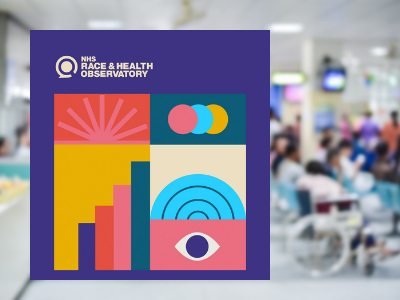The NHS Race & Health Observatory, an independent body working to tackle ethnic inequalities in healthcare, has published a new three-year strategy.
The publication – ‘Driving Race Equity in Health and Care’ – includes aims, goals and plans for 2021 – 2024.
A range of topics are included in the plan, with the priorities based around improving health and care, empowering vulnerable communities, innovating for all, creating equitable environments, and collaborating globally.
Describing its ultimate aim as being “to help close the gap on ethnic inequalities in health and care”, the Observatory explains that “language has power” and says it will be guided by five principles when “talking or writing about race and ethnicity”.
Its principles include: being specific where possible and only using collective terminology” where there is a legitimate need to do so”; not using acronyms or initialisms such as BME or BAME; being guided by context when a collective term is required; being transparent about the organisation’s approach to language; being adaptable and open to changing its approach in future.
“Inequalities in health are not just about the experiences people have in hospitals, surgeries or care homes, but also about the broader social factors that dictate our level of health risk in the first place,” state the authors. “Forces such as racism, discrimination, deprivation, and social segregation influence a person’s quality and length of life long before they encounter our health and care system.”
“There are opportunities before us,” the strategy notes, “The health system in England is undergoing another restructure, putting the emphasis on integrated care across systems, places, and populations, and specifically including the reduction of health inequalities as a measure of success. We have the opportunity to embed inequality at the very heart of these new ways of working.”
It adds: “With technological advances such as genomics and precision medicine promising to change the future of healthcare, we have the opportunity to make this new age of medicine more equitable than the last.”
The Observatory, which was established in 2021, highlights that its values are: independence; objectivity; integrity; collaboration; and effectiveness.
After explaining how the organisation works, its models and processes, and how it will measure its impact, the body goes on to elaborate on its five main priorities and workstreams.
These encompass a wide array of activities and initiatives, such as: establishing groups of experts with lived experiences; funding original research which will lead to making actionable recommendations to policy makers; building networks and facilitating conversations about the future of race equality in maternity health and mental health; engaging with patients, service users, and specialists to identify issues; co-producing resources; establishing an advisory group for digital inclusion, data use and emerging technologies; commissioning reviews of the current system architecture; scrutinising accountability structures, workplace environments, pay, and transformation processes; collaborating with experts across the globe; and much more.
Marie Gabriel CBE, Chair, commented: “The Observatory is a critical next step in the health and care system’s race equality journey. It will ensure that we harness the expertise of our academics, communities, and clinicians. It will challenge leaders, but also support the implementation of practical solutions. In so doing, it will seek to radically address ethnic health inequalities in this country.”
Find the full strategy online, here.



